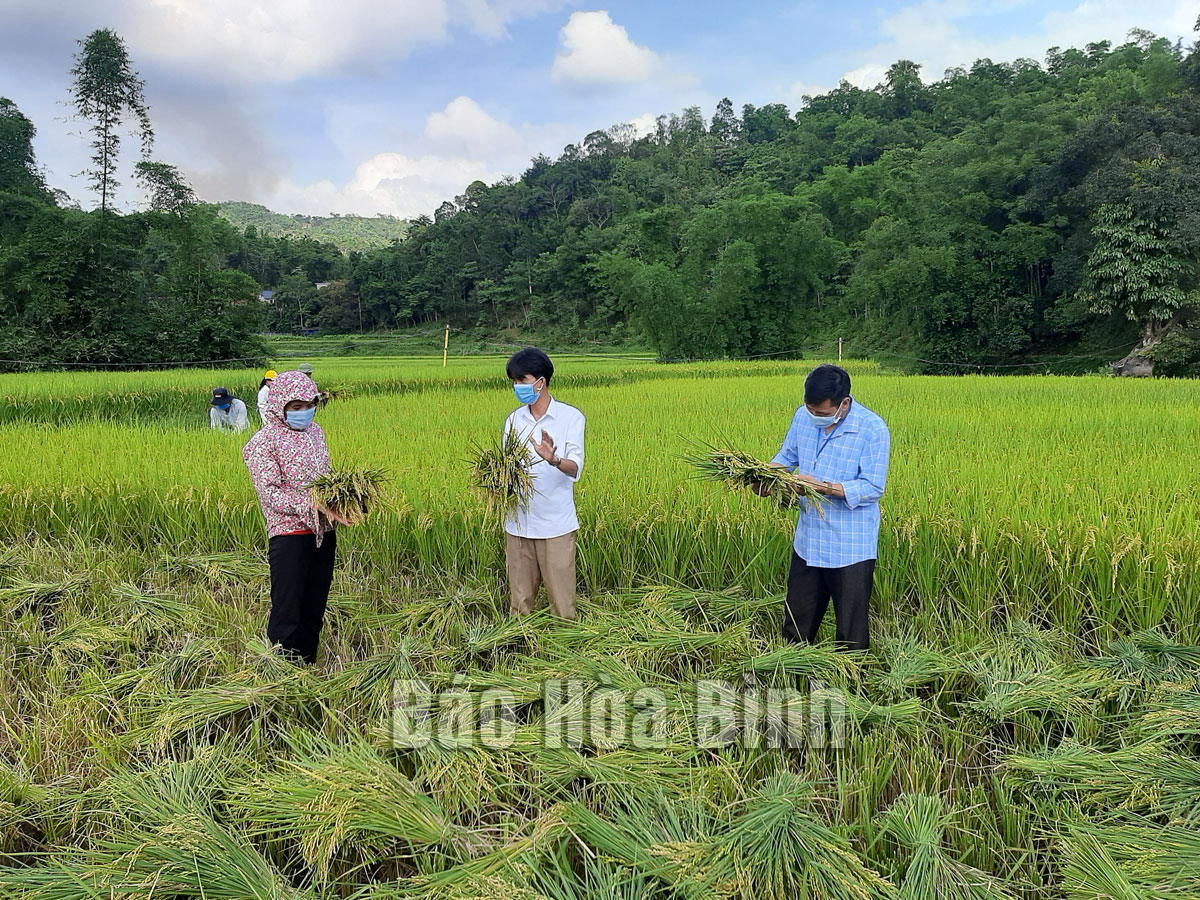
(HBO) – Over the last 5 years, science and technology’s contribution to Hoa Binh’s economic growth has increased from 23.08 percent to 30.24 percent and that of labour productivity rose from 5.25 percent to 8.33 percent. Science, technology and innovation has become a key accelerator of growth in labour productivity and improvement of the province’s competitiveness.

Farmers in Muong Chieng Commune, Da Bac District apply
technology in intensive farming of J02 rice variety to enhance productivity and
production value.
The province has benefited from agricultural and
rural projects as parts of the Ministry of Science and Technology’s programmes
aiming to accelerate technology transfer and apply science and technology to
boost socio-economic development in rural and mountainous areas.
From 2011 – 2020, Hoa Binh implemented four
national science-technology tasks with total budget of 18.43 billion VND from
the central budget, including the pilot production of medicinal plants in Lac
Thuy District, preservation of genetic resources of "tai chua" plant
(garcinia cowa), application of biological measures to prevent certain pests on
orange and tangerine roots, and drafting a proposal for long-term population
resettlement and solutions for effective management of land in areas vulnerable
to natural disasters and climate change.
The accomplishment of the national tasks has
played a part in reducing poverty and minimizing impacts of natural disasters,
and pest and disease control in the province, helping it enhance productivity
and develop commodity production zones.
In addition, the province has implemented 17
projects under the programme supporting the application and transfer of
technological advances for socio-economic development in rural and mountainous
areas with total budget of close to 106 billion VND. The projects mainly focus
on the areas of agriculture and rural development to help create farming
practices using advanced and scalable techniques.
During the past 2 years, the province has
carried out a project to boost agricultural growth and develop livelihood for
natural disaster-affected people across 13 communes and townships and 91
villages in Da Bac District. Many other projects have also proved effective in
other localities in recent years.
Hoa Binh province is undergoing a dynamic transformation amid Vietnam’s national digital transition. Building on Poliburo’s Resolution No. 57-NQ/TW on breakthroughs in science, technology, innovation, and national digital transformation, the province has rolled out a wide range of practical action plans. A standout initiative is the "Digital Literacy for All” movement, an effort to ensure that no one is left behind in the digital era.
Hoa Binh province is undergoing a dynamic transformation in the wake of the national digital transformation movement. Building on Resolution No. 57-NQ/TW of the Politburo on breakthroughs in science, technology, innovation, and national digital transformation, the province has implemented a wide range of practical action plans. A standout initiative is the "Digital Literacy for All” movement ambitious effort to ensure that no one is left behind in the digital age.
With a spirit of unity and proactive problem-solving, the Party Committee, the government and the people of Dong Lai Commune (Tan Lac District) have made great strides in implementing the resolutions of the 24th Party Congress of the commune for the 2020 - 2025 term. Focusing on leadership and practical actions, the commune has brought the Party’s resolutions into daily life, creating strong impacts and pushing the local development forward.
Amid the nationwide push for digital transformation, young people in Hoa Binh Province are stepping up as dynamic pioneers, applying technology to enhance Youth Union operations and expand the reach of youth-led initiatives. Through creativity and adaptability, Youth Union organizations at all levels have introduced a series of practical solutions, contributing to modern governance and community development.
In recent years, An Nghia commune, located in Lac Son district, has stepped up administrative reform, focusing on improving the quality and efficiency of its single-window service unit for receiving and processing administrative procedures. These improvements have helped create favourable conditions for local residents and organisations to handle administrative procedures, contributing to the commune’s broader socio-economic development.
The Prime Minister-approved master plan to develop the multi-use value of forests ecosystems through 2030, with a vision to 2050, aims to improve the management and sustainable use of forest resources, create jobs, increase incomes, and improve the living standards of ethnic minorities, people in mountainous and remote areas, forest workers and those living near forests.



